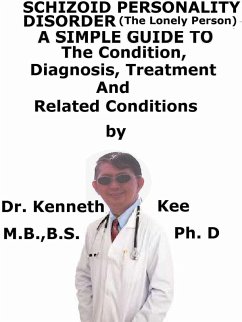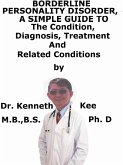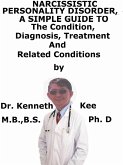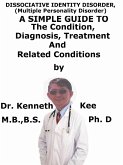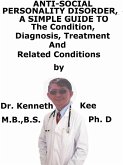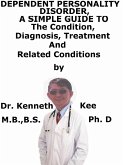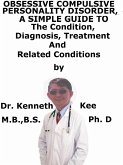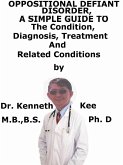It takes a very special kind of person to become close to a schizoid.
We can't stand fake people or pretentiousness, and so that automatically cuts out most of humanity.
- a schizoid
People with schizoid personality disorder seldom feel there is anything wrong with them.
Schizoid personality disorder is one of a cluster of disorders called "Cluster 'A' " or eccentric personality disorders.
People with these disorders often seem odd or peculiar.
Symptoms are:
1.An indifference to social relationships and
2.A limited range of emotional expression.
People with schizoid personality disorder also are likely to be distant, detached, and indifferent to social relationships.
They normally are loners who favor solitary activities and seldom express strong emotion.
Schizoid personality disorder is a model of indifference to social relationships, with a restricted range of emotional expression and experience.
The disorder presents itself by early adulthood through social and emotional detachments that stop people from having close relationships.
People with it are able to function in daily life but will not form good relationships with others.
They are normally loners and may be susceptible to excessive daydreaming and forming attachments to animals.
They may do well at solitary jobs others would find not tolerable.
There is evidence that indicates that the disorder may be the start of schizophrenia, or just a very mild form of it.
People with schizoid personality disorder are in touch with reality unless they form schizophrenia.
While their names sound alike and they might have some similar symptoms, schizoid personality disorder is not the same as schizophrenia.
Many people with schizoid personality disorder are able to work fairly well while they are likely to choose jobs that allow them to work alone, such as night security officers, library, or lab workers.
Schizoid Personality Disorder person:
1.Takes pleasure in few, if any, activities
2.Does not want or enjoy close relationships, including family
3.Seems aloof and detached
4.Avoids social activities that involve significant contact with other people
5.Almost always chooses solitary activities
6.Little or no interest in sexual experiences with another person
7.Lacks close relationships other than with immediate relatives
8.Indifferent to praise or criticism
9.Shows emotional coldness, detachment or flattened affect
10.Shows little observable change in mood
People with schizoid personality disorder will continue contact with reality.
Men tend be more prone to have this disorder than women.
People with schizoid personality disorder often are withdrawn, managing their lives to avoid contact with other people.
People with this disorder seldom seek treatment.
Talk therapy may not be successful because people with schizoid personality disorder have problem relating well to others
Medicines are not normally advised for schizoid personality disorder.
They are occasionally used for short-term treatment of extreme anxiety states linked with the disorder.
The presence of anxiety, normally caused by fear of other people, may indicate that a diagnosis of the linked schizotypal personality disorder is more fitting.
Personal therapy that effectively obtains a long-term level of trust helps in certain cases of schizoid personality disorder by giving patients a channel to change their false perceptions of friendships into true relationships.
Personal psychotherapy can form a true relationship between the patient and therapist.
Social skills training is an essential component of treatment.
TABLE OF CONTENT
Introduction
Chapter 1 Schizoid Personality Disorder
Chapter 2 Causes
Chapter 3 Symptoms...
Dieser Download kann aus rechtlichen Gründen nur mit Rechnungsadresse in A, B, CY, CZ, D, DK, EW, E, FIN, F, GR, H, IRL, I, LT, L, LR, M, NL, PL, P, R, S, SLO, SK ausgeliefert werden.

